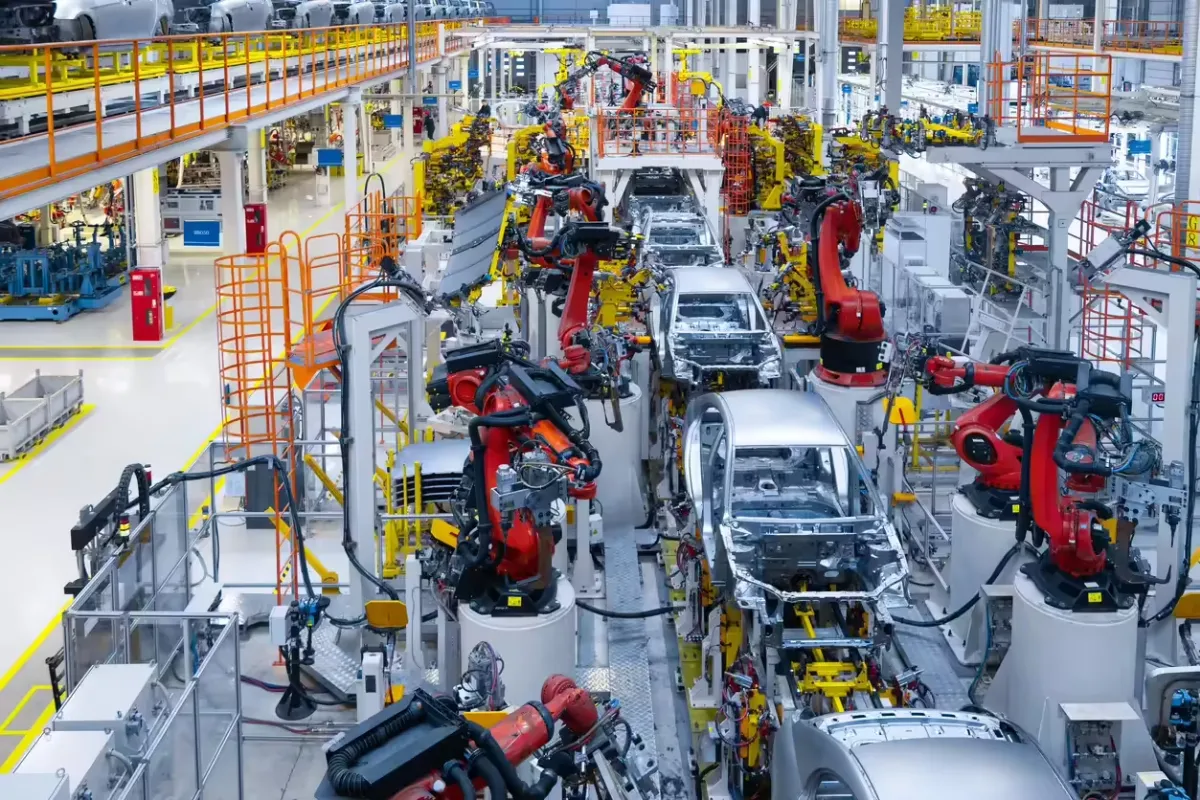Shares of major auto companies, including Maruti Suzuki and Hero MotoCorp, surged up to 8% following reports that the government is considering a significant GST rate cut on vehicles. Investors are betting on a major demand boost.
 Minaketan Mishra
Minaketan Mishra

A wave of optimism swept through the Indian stock market on Monday, sending shares of major automobile manufacturers soaring by as much as 8%. The rally was fueled by widespread reports and growing anticipation that the GST Council is seriously considering a proposal to slash the Goods and Services Tax (GST) rate on several key sectors, including automobiles, two-wheelers, and cement, from the current 28% to 18%. This potential tax relief is a key component of a broader GST reform agenda announced by Prime Minister Narendra Modi, which aims to simplify the tax structure and boost consumption ahead of the Diwali festive season.
Leading the charge were some of the biggest names in the Indian auto industry. Shares of Maruti Suzuki, the country's largest carmaker, saw a significant jump, alongside two-wheeler giant Hero MotoCorp and commercial vehicle manufacturer Ashok Leyland. Other major players like Mahindra & Mahindra and Eicher Motors also experienced substantial gains as investors rushed to capitalize on the potential for a massive surge in demand that a 10% tax cut could unleash. According to an analysis by Nomura, a 10% reduction in GST could boost auto demand by a staggering 15%.
The market's excitement stems from a government proposal to overhaul the current multi-tiered GST system, which has been in place since 2017. On India's 79th Independence Day, Prime Minister Modi promised a "Diwali gift" to the nation in the form of "next generation" GST reforms designed to reduce the tax burden on the common citizen.
The Finance Ministry has since proposed a simplified two-rate structure to a Group of Ministers (GoM). This new framework would feature two primary slabs: a 'merit' rate of 5% and a 'standard' rate of 18%. The plan involves shifting the vast majority of items currently in the 12% bracket down to 5%, and moving about 90% of taxable goods from the highest 28% slab to the 18% slab. A special "sin tax" rate of 40% would apply to a very limited number of items like tobacco and pan masala.
The automobile industry has long been advocating for a reduction in GST rates, arguing that the 28% levy places a heavy burden on consumers and stifles growth. Currently, small cars are taxed at 28%, and a potential shift to the 18% slab would make them significantly more affordable. The move is seen as a major victory for carmakers like Maruti Suzuki and Hyundai, who have a strong presence in the small car segment.
Similarly, the two-wheeler segment, a crucial part of India's personal mobility landscape, stands to benefit immensely. A rate cut would lower prices for millions of potential buyers, particularly in rural and semi-urban areas, driving up volumes for companies like Hero MotoCorp and Bajaj Auto. The commercial vehicle sector, represented by players like Ashok Leyland and Tata Motors, would also see a significant boost, as lower vehicle costs could stimulate fleet replacement and expansion plans for logistics companies.
The proposed GST reforms are not limited to the auto sector. The government's plan to lower rates on a wide range of goods and services is expected to have a far-reaching impact on the economy. Sectors like cement, consumer durables (such as air conditioners), and FMCG are also likely to see rate cuts, which could spur demand and investment.
The reforms are designed to address several structural issues within the current GST system, including correcting inverted duty structures, simplifying the classification of goods to minimize disputes, and providing more stable and predictable tax rates to improve the ease of doing business. The GST Council is expected to meet in September to deliberate on these proposals, with the goal of implementing the changes before Diwali.
As the market digests the news, the auto sector remains firmly in the spotlight. While the final decision rests with the GST Council, the strong indication of a rate cut has already provided a powerful catalyst for auto stocks. The coming weeks will be crucial as investors and industry stakeholders alike await the official announcement that could reshape the future of one of India's most vital manufacturing sectors.






Sign up for the Daily newsletter to get your biggest stories, handpicked for you each day.
 Trending Now! in last 24hrs
Trending Now! in last 24hrs